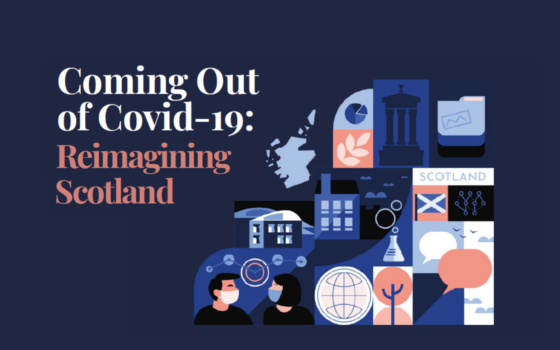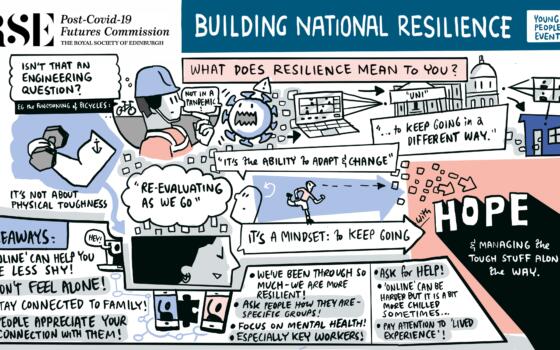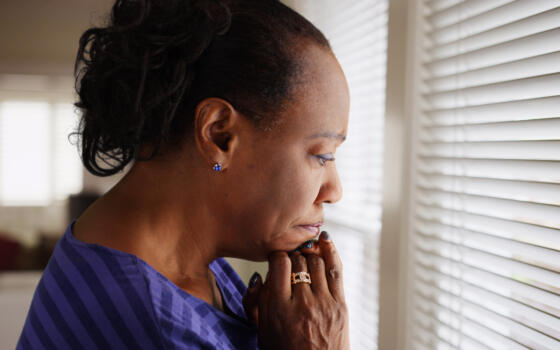Businesses must reflect honestly on their resilience
The Post-Covid-19 Futures Commission recently released its report Coming Out of Covid-19: Reimagining Scotland. I chaired the Building National Resilience working group, and we looked at how everyone, from individuals right through to Government, can become more resilient in the face of a crisis. By debating the issue with experts in Scotland and internationally, we identified key attributes of resilience; diversity, spare capacity, connectivity, inclusiveness/fairness, adaptation, preparedness, and technology. While many organisations are understandably still in recovery mode, it would be beneficial for leaders to reflect on the pandemic, and carry out an honest review of their organisation’s risk register, and resilience factor.
For many, diversity in the organisation must be examined.
This could be assessing supply chains and customer base and, while it may seem obvious, having one supplier or one key demographic as a customer base is a risk. If one goes bust, the entire organisation will be affected, resulting in catastrophic operational issues.
Having spare capacity in normal times creates a buffer for abnormal times. For example, it considers stock and staffing. In the UK we often work on a “just in time” supply model, with few companies holding stock or reserve inventory. This places them at the mercy of the supply chain, and we have seen the negative effect of this in recent weeks, with shortages of certain items in supermarkets. Having reserve of business-critical stock allows for breathing space should an issue arise, and the theory applies to staffing too. Many businesses trim the fat to operate as leanly as possible, but in the services or medical industries, having employees on call should they be needed will provide the back-up necessary during unexpected events.
The next thing to consider is connectivity.
Collaboration allows for resilience. If local governments work in partnership with each other, they can share resources. For example, if one council has a shortage of rock salt during a particularly icy spell, they can lean on their network of bordering councils to provide additional resources. While this is more difficult in the private sector where there is competition, the pandemic shone a light on those who were able to support each other, like private medical practices donating their PPE to hospitals.
However, you’re only likely to develop this strong network if you carry out your day-to-day operations with integrity, inclusivity, fairness and equality. Organisations should ask themselves:
“Are we working in a way that means that our suppliers, customers or employees would be kind to us in times of trouble? Is there trust between those involved?”
Those who do not have a fair and inclusive reputation with these key stakeholders are unlikely to receive support or leniency in times of crises. This matters internally too. For example, consider the team members you depended on while their colleagues were furloughed. It is likely they carried out additional duties, diversified their skillsets or became more flexible in order to support the business. Without a positive culture of fairness and loyalty in the organisation, it is unlikely that employees will be as happy to repeat these can-do behaviours, should you ask them again.
Very few of us were prepared for the pandemic, and I doubt anyone could have predicted the effect it was going to have.
But every organisation should have an up-to-date risk register, in which they are truly assessing the risks to their business, and how they might be mitigated. Prevention and robust preparation are key in supporting an effective response to both emerging and known challenges; this includes horizon scanning and foresighting to identify and prepare for societal risks and threats.
Indeed, one of the key recommendations from the report is that the Scottish Government should establish a Foresighting Centre, independent of government and industry. This hub would be tasked with assessing future risks and preparedness, and supporting businesses with this insight. A health pandemic was a known risk – and yet there was little communication from government to businesses about what it might look like, or how they should prepare.
The final consideration is adaptation – making sure we are learning from our experiences.
Businesses must look at how they handled the pandemic, and consider what would happen should they find themselves in a similar situation in future. Many industries pivoted their offering – like hospitality premises offering takeaways and transforming their pavements into outdoor seating areas. This kind of initiative meant many businesses survived the pandemic, but it was a reactive move. By looking forward and being proactive, they can consider how best to adapt their operational plans to protect themselves during future crises.
Authored by Professor Sir Ian Boyd FRSE , chair of the Building National Resilience working group.
The Post Covid-19 Futures Commission report has identified key recommendations for the Scottish Government and public bodies to take forward to help Scotland recover from the pandemic, with business resilience being just one of the areas explored.









